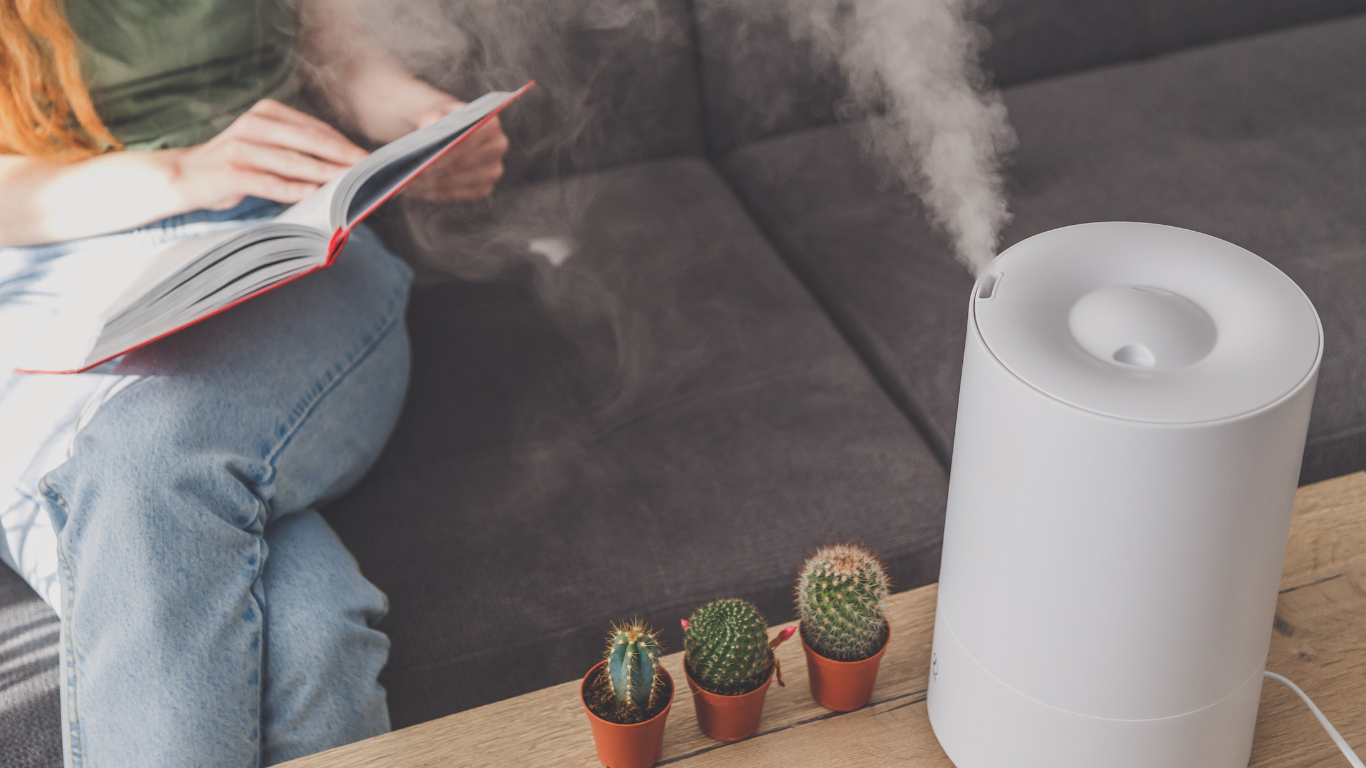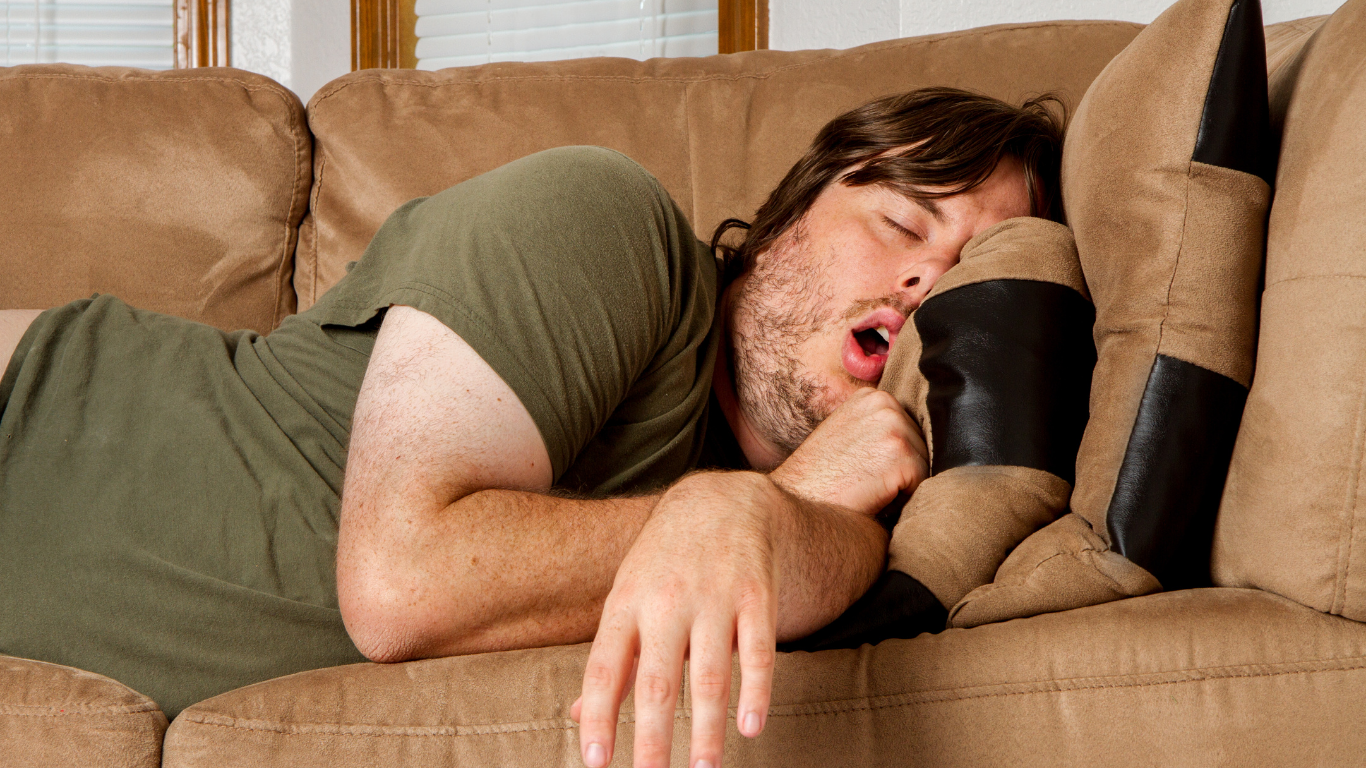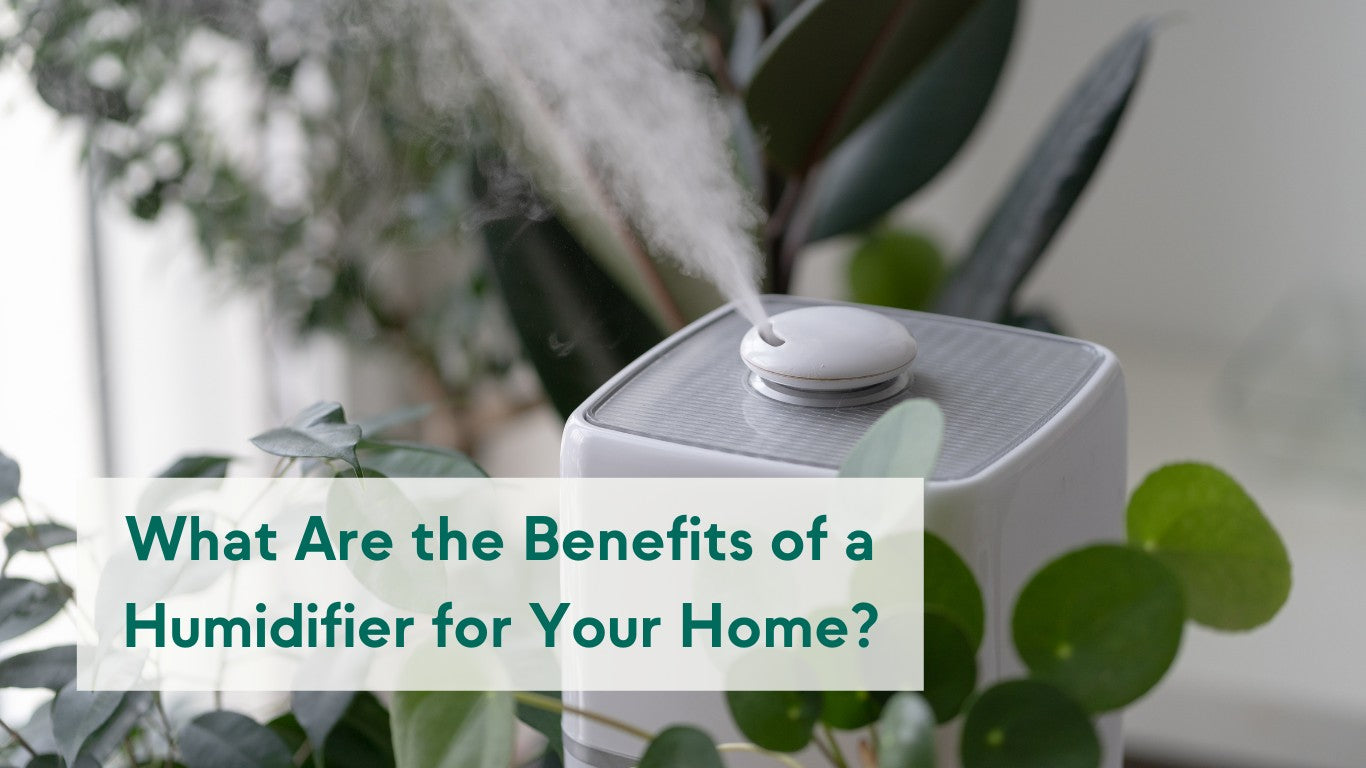
Humidifiers add moisture to your home air, which can benefit people with certain respiratory symptoms or skin irritation and allergies.
During cold winter months or in the heat of the summer when your AC is on, you may notice that the air in your home is dry. Just like very humid air could be bad news for your health, dry air is a horrible sensation on your throat and skin, and may cause nose and eye irritation in otherwise healthy people. One solution is to use a humidifier if the air in your home is too dry.
Humidifiers can help soothe these familiar problems caused by dry indoor air like dry sinuses, bloody noses and cracked lips. And cool-mist humidifiers also may help ease symptoms of a cold or other respiratory condition.
But be cautious: Although useful, humidifiers can make you sick if they aren't maintained properly or if humidity levels stay too high. If you use a humidifier, be sure to check the humidity levels and keep your humidifier clean. Dirty humidifiers can be the source of mold or bacteria. If you have allergies or asthma, talk to your doctor before using any humidifier.
Below, you will learn how humidifiers work, the benefits of using one in your home, and how to choose the right one and use it correctly.
What is a humidifier?
A humidifier is a device, normally electronical, that evaporates a liquid – mostly water – and disperses it in the air in order to increase an environment humidity level. Humidifier therapy, in particular, adds moisture to the air to prevent dryness that can cause irritation in many parts of the body. Humidifiers can be particularly effective for treating dryness of the skin, nose, throat, and lips. They can also ease some of the symptoms caused by the flu or common cold.
However, overusing humidifiers can potentially worsen respiratory problems. It’s important to know how to use them correctly.
Ideal Humidity
Humidity refers to the amount of moisture present in the air and varies depending on the season, the weather and your home's location. Generally, humidity levels are higher in the summer and lower in the winter and ideally, humidity in your home should always be maintained between 30% and 50%. Humidity levels either too low or too high can cause problems:
-
Low humidity
Can cause dry skin, irritate your nasal passages and throat, and make your eyes itchy.
-
High humidity
Can make your home feel stuffy and can cause condensation on walls, floors and other surfaces. Condensation can trigger the growth of harmful bacteria, dust mites and molds. These allergens can cause respiratory problems and trigger allergy and asthma flare-ups.
Studies by NASA indicate that the ideal humidity level for the optimal sleep condition is between 50-60% though there are benefits to using a humidifier during sleep, excessive use may actually disrupt sleep patterns. For example, high humidity alters the perception of the room temperature of an enclosed room; the higher the humidity, the hotter the room feels to us. On the other hand, if both humidity and heat are elevated, the sweat response will become disrupted, preventing the natural cooling relief of evaporation when we sweat. This can decrease REM and cause you to stay awake.
How to measure air humidity
The best way to test humidity levels in your house is with a hygrometer. This is a device that looks like a thermometer but measures the amount of moisture in the air instead. Hygrometers can normally be purchased at hardware stores and department stores. To avoid buying one, when buying a humidifier, consider purchasing one with a built-in hygrometer that keeps humidity within a healthy range.

Dehumidifiers: the other side of the coin
Just as air that's dry can be a problem, so can air that's too moist. When humidity gets too high - usually during summer months – it can be a good idea to take steps to prevent or reduce indoor moisture. A few simple things you could do to reduce humidity levels in your home are:
-
Using an air conditioner
Central or window-mounted air conditioning units dry the air, keeping indoor humidity at a comfortable and healthy level.
-
Using a dehumidifier
These devices are specifically designed for very humid environments to collect excess moisture from the air, lowering humidity levels. Dehumidifiers work like air conditioners, without the "cooling" effect. They're often used to help dry out damp basements.
What are the benefits of using a humidifier?
The majority of homeowners are doing everything they possibly can to keep their families warm during winter. However, there is a consideration that many overlook: the warmer your air, the drier it is.
Throughout the winter, your heating often strips the air of precious moisture during the process, which can cause the air inside your home to feel exceedingly dry. The best way to have a more energy-efficient and comfortable home during the winter is to keep your indoor humidity under control.
By adding a whole-home humidifier to your HVAC system, you can alter humidity levels directly through your thermostat. You will have the ability to place the humidity to any level you choose without worrying about turning the system on and off. When the heating season concludes, your humidifier can be drained and powered off until it is needed again. The only maintenance your humidifier should need can be performed by your service technician during your regular HVAC tune-ups.

Humidity is sometimes discounted as a component of indoor comfort and air quality. But there are many reasons why a whole home humidifier is worth the investment:
-
Better Overall Health
Low humidity can dry out your nasal passages, sinuses, throat, and even lungs. By raising indoor humidity to healthier levels, a whole house humidifier may lower your family’s risk of sinusitis and sore throat. For some people, a humidifier can also help reduce the severity of allergies and asthma, although you should always consult with your doctor first. And make sure to keep up on regular maintenance, as a poorly maintained humidifier can spread mold or bacteria, making allergies and asthma worse.
Adding moisture to your home’s dry air may also help prevent the spread of airborne viruses, such as colds and flus. Authors of one study Trusted Source noted that humidifiers might reduce the risk of catching the flu. After adding the influenza virus to the air with a simulated cough, researchers found that humidity levels above 40% rapidly deactivated virus particles, making them much less likely to be infectious. Basically, in drier air, viral droplets evaporate into smaller aerosols faster and float longer, giving them more opportunity to infect the people in your home.
Lastly, if you or someone in your family has a cold, cough, or other respiratory disease, healthy humidity levels may help reduce inflammation, open airways, and ease congestion.
-
Better Sleep (and Less Snoring)
Low humidity indoor air can dry out your soft palate, triggering snoring or making it worse. A humidifier help you moisten the soft palate, throat, and nasal passages while you are asleep and it may also reduce allergies and congestion, both of which cause snoring.

With less snoring, easier breathing, and better overall comfort, you and your family will enjoy all the benefits of a good sleep too.
-
Improved Home Comfort
No matter how much lotion and lip balm you apply through the winter, properly humidified air is going to be more comfortable for you and everyone around. You’re less likely to develop chapped lips, dry skin and eczema, or irritated eyes and throat.
A home humidifier also reduces static electrical charge in your home: that same static that may mess up your hair, cling to your clothes, or give you a shock when you touch a family member or pet.
On top of that, drier air also feels colder, so adding moisture will help you feel warmer at lower temperatures.
-
Energy Savings
Because moist air feels warmer, you may be able to lower your thermostat a degree or two, saving money on your utility bills. Powering the humidifier does consume a little electricity, but, as some types of whole house humidifiers are extremely efficient. You can easily have a net savings on your utilities.
-
Improves Your House
Finally, maintaining moderate humidity in your home is better for your house and many of your belongings.
Excessively dry air can shrink, warp, or crack wood floors, framing, molding, and furniture. It can dry out and cause peeling in paint. It can even damage wooden instruments such as guitars and violins. And the increase in static electricity can damage sensitive electronics. All of this can be prevented by maintaining that 30-50% relative humidity range we mentioned earlier.
Home humidifiers are also great for your houseplants’ health as most common indoor plants originate from humid tropical climates, they tend not to do well in dry air. They’ll surely thank you for the added humidity with healthier, greener leaves!
Depending on where you live, the weather may have an impact on when the air in your home feels dry. For example, if you live somewhere with high levels of outdoor humidity, you probably run your air conditioner a lot in the summer. Air conditioning may dry out your home’s air. Using a humidifier may help counteract this. If you live somewhere with dry air, a humidifier might be good to use year-round.
Since pollen and mold counts tend to be higher in the spring and summer, using a humidifier in your home may also help keep your sinuses from becoming inflamed.
What types of humidifier are out there?
When we talk about whole house humidifiers, there are three main types:
-
Bypass
Humidifiers periodically spray water onto a pad or filter through which your HVAC system’s blower pushes heated air. Because bypass humidifiers piggy-back on the forced air your HVAC system is already moving, they are extremely efficient. However, they cannot run independently, the heat must be running for the humidifier to add moisture. For extremely dry air, this may not be enough.
-
Fan-powered
-
Steam
Humidifiers heat water to generate steam, which is then pushed through your ductwork. They are highly effective but use 14 times as much electricity as bypass humidifiers, according to Energy Star.

Additionally, there are other types of humidifiers such as:
- Ultrasonic humidifiers. These produce a cool mist with ultrasonic vibration.
- Impeller humidifiers.These humidifiers produce a cool mist with a rotating disk.
- Evaporators. These humidifiers use a fan to blow air through a wet wick, filter or belt.
How to properly clean a humidifier?
Dirty reservoirs and filters in humidifiers can quickly breed bacteria and mold. Dirty humidifiers can especially cause problems for people with asthma and allergies. But even in healthy people, dirty humidifiers have the potential to trigger flu-like symptoms or even lung infections when the contaminated mist or steam is released into the air.

Evaporators and steam vaporizers may be less likely to release airborne allergens than may cool-mist humidifiers.
Tips for keeping your humidifier clean
To keep humidifiers free of harmful mold and bacteria, follow the guidelines recommended by the manufacturer. These tips for portable humidifiers also can help:
-
Use distilled or demineralized water.
Tap water contains minerals that can create deposits inside your humidifier that promote bacterial growth. When released into the air, these minerals often appear as white dust on your furniture. It's also possible for you to breathe in some minerals that are spread into the air. Distilled or demineralized water has a much lower mineral content than does tap water. Also, use demineralization cartridges or filters if recommended by the manufacturer.
-
Change humidifier water often
Don't allow film or deposits to develop inside your humidifiers. Empty the tanks, dry the inside surfaces and refill with clean water every day if possible, especially if using cool-mist or ultrasonic humidifiers. Unplug the unit first.
-
Clean humidifiers every 3 days
Unplug the humidifier before you clean it. Remove any mineral deposits or film from the tank or other parts of the humidifier with a 3% hydrogen peroxide solution, which is available at pharmacies. Some manufacturers recommend using chlorine bleach or other disinfectants.
-
Always rinse the tank after cleaning
This can keep harmful chemicals from becoming airborne — and then inhaled.
-
Change humidifier filters regularly
If the humidifier has a filter, change it at least as often as the manufacturer recommends — and more often if it's dirty. Also, regularly change the filter in your central air conditioning and heating system.
-
Keep the area around humidifiers dry
If the area around a humidifier becomes damp or wet - including windows, carpeting, drapes or tablecloths - turn the humidifier down or reduce how often you use it.
-
Prepare humidifiers for storage
Drain and clean humidifiers before storing them. And then clean them again when you take them out of storage for use. Throw away all used cartridges, cassettes or filters.
-
Follow instructions for central humidifiers
If you have a humidifier built into your central heating and cooling system, read the instruction manual or ask your heating and cooling specialist about proper maintenance.
-
Consider replacing old humidifiers
Over time, humidifiers can build up deposits that are difficult or impossible to remove and encourage the growth of bacteria.
A conclusive note
Humidifiers can benefit people with skin issues or respiratory problems who live in areas with low humidity. It is essential to remember that humidifiers cannot treat underlying conditions, such as asthma. They may be beneficial, but they should not replace medical treatment.
Anyone experiencing new or worsened symptoms when using a humidifier should turn it off and contact a doctor.
Humidifiers are available in many department stores and online.

Share:
How Nature can Boost our Health and Performance
Air Purifier vs Humidifier: Choose the Right Device for Your Home and Health